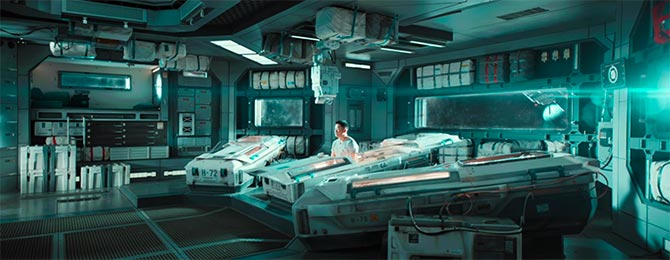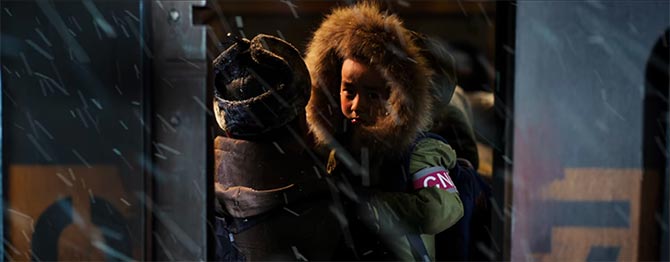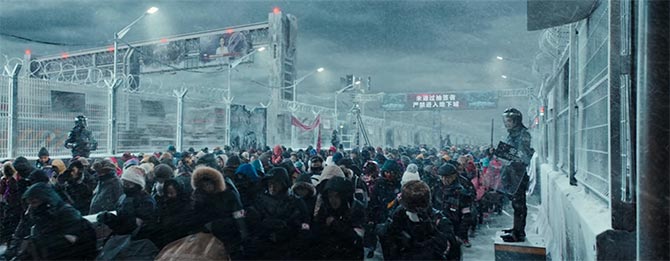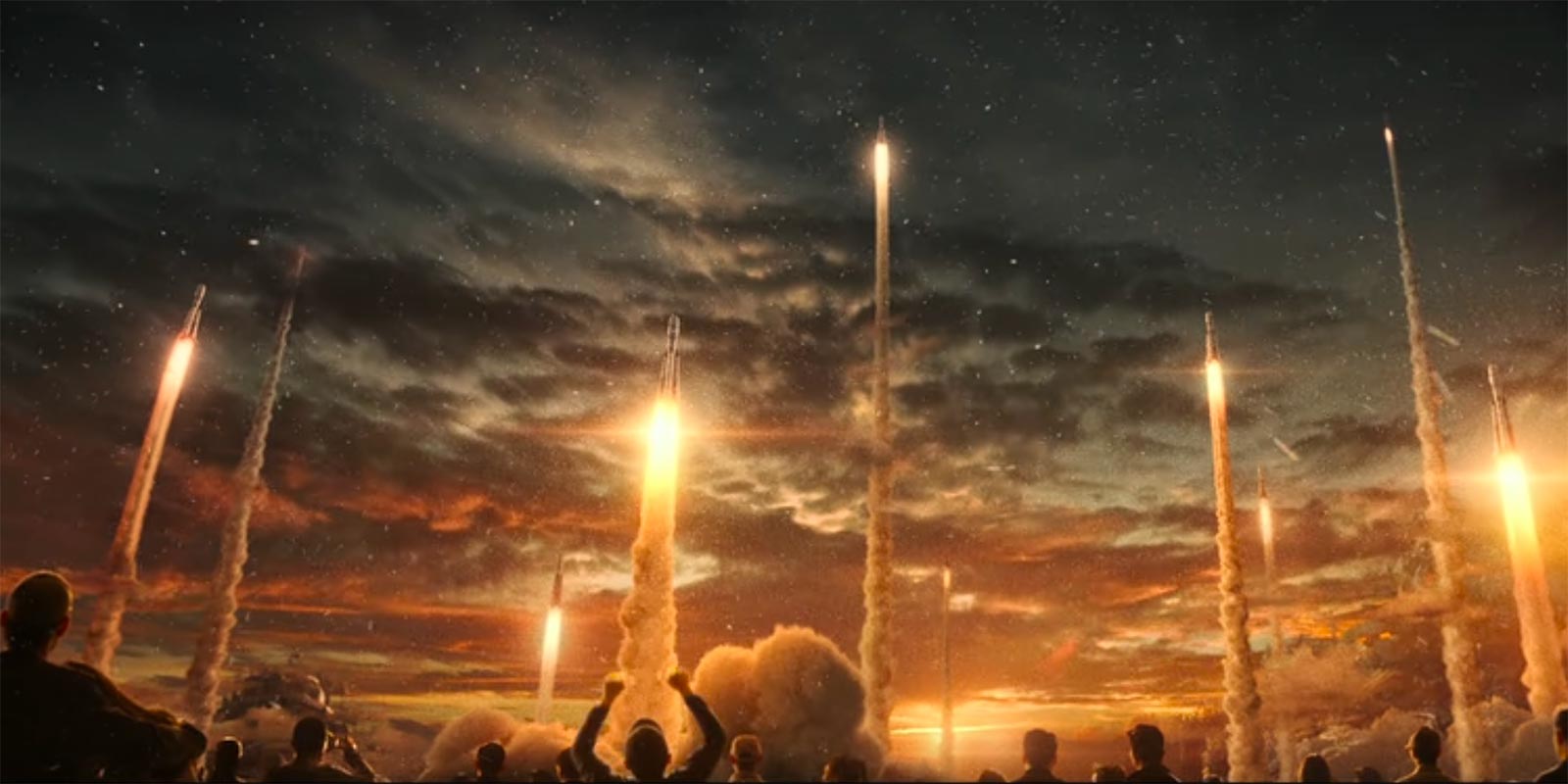For those of you interested in space operas and big-budget sci-fi's, you might be interested to learn that The Wandering Earth—an adaptation of Liu Cixin's short story—is currently playing on Netflix.
I'd heard rumbles about Wandering Earth prior to watching this, and it's due to my connections with the Book Twitter community. A mega-blockbuster set on a near-future Earth where the planet is being ravaged by swelling oceans and blistering droughts, this film absolutely lives up to its hype.
Soon into the story, we learn that the sun's core has destabilized and is rapidly turning into a Red Giant. In a push to save their planet, the United Earth Government has undertaken a massive project where they install engines along the Earth's equator and Asia in order to turn the planet into a spaceship. They then plan to propel this planet through the stars to a new system.
One of the astronauts involved in this undertaking—Liu Peiqiang—has left his then-four-year old son Liu Qi with his father-in-law in the underground settlement of Hangzhou. Since Earth has started its journey, he's been travelling on a scouting spaceship just ahead of it. His son has grown up into a disaffected rebel, furious at the fact that his father left him behind.
When the Wandering Earth passes too close to Jupiter—and the Earth is sucked into its gravitational pull—father and son must reconcile and coordinate a rescue mission before the planet is torn to shreds. That seems like a lot in terms of plot, but WOW. Was this story an enjoyable ride.
The Good

Wandering Earth lacks character depth in the way that most blockbusters do. If you've ever seen Armageddon or The Day After Tomorrow, you'll know the sort of shortcoming I'm talking about. These films have lots of action and theatrics, but spend very little time on internal character development. Even still, I absolutely loved this movie.
I mean, what's not to love when the characters turn the planet into a spaceship and try to slingshot it past Jupiter?
The scientific veracity of this concept is suspect—seriously, I have my doubts on its feasibility and I'd need to look it up—but I adore how this film pushed the envelope as far as it could go, and how it said to the audience "this is the future, and we'll show you what we want." The action is phenomenal from start to finish and the CGI is also top-notch.

In many western blockbusters you see a lot of distrust towards the government and your fellow citizens. It's a very individualistic mindset, and these movies often make it clear that the characters need to look out for themselves if they want to survive.
I share similar doubts about the government, but it was nice to see the Wandering Earth put less emphasis on individual motivation and more on how these characters work together as a society; how sacrificing for that society can make it better as a whole.
This film also has the distinction of being one of the few blockbusters to make me cry. Often I just chew popcorn through these things, but I actually teared up in parts and it's because the film made me feel empathy towards the characters. It's a testament to how these actors carried their performances forward.
The Bad

While this movie was phenomenal for its action, it's also a very long film. If you're planning to watch it, make sure you set aside a decent chunk of time.
The Verdict
The Wandering Earth is based upon a short story by Liu Cixin, a science fiction writer who possesses incredible accolades. To-date, Cixin has won the Galaxy Award nine times, the Hugo Award in 2015, and the Locus Award in 2017. His most recent short story to hit the shelves is Fields of Gold, also known as Twelve Tomorrows.
